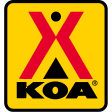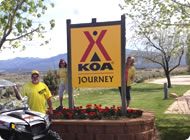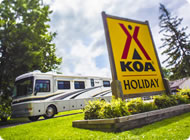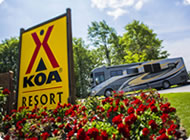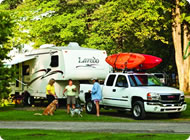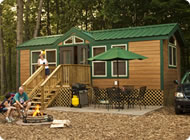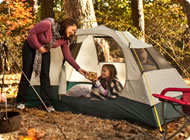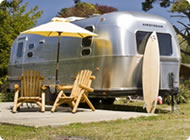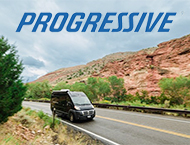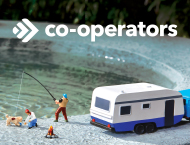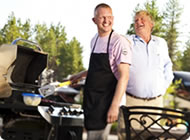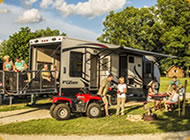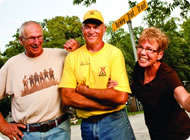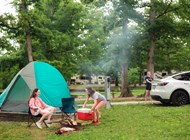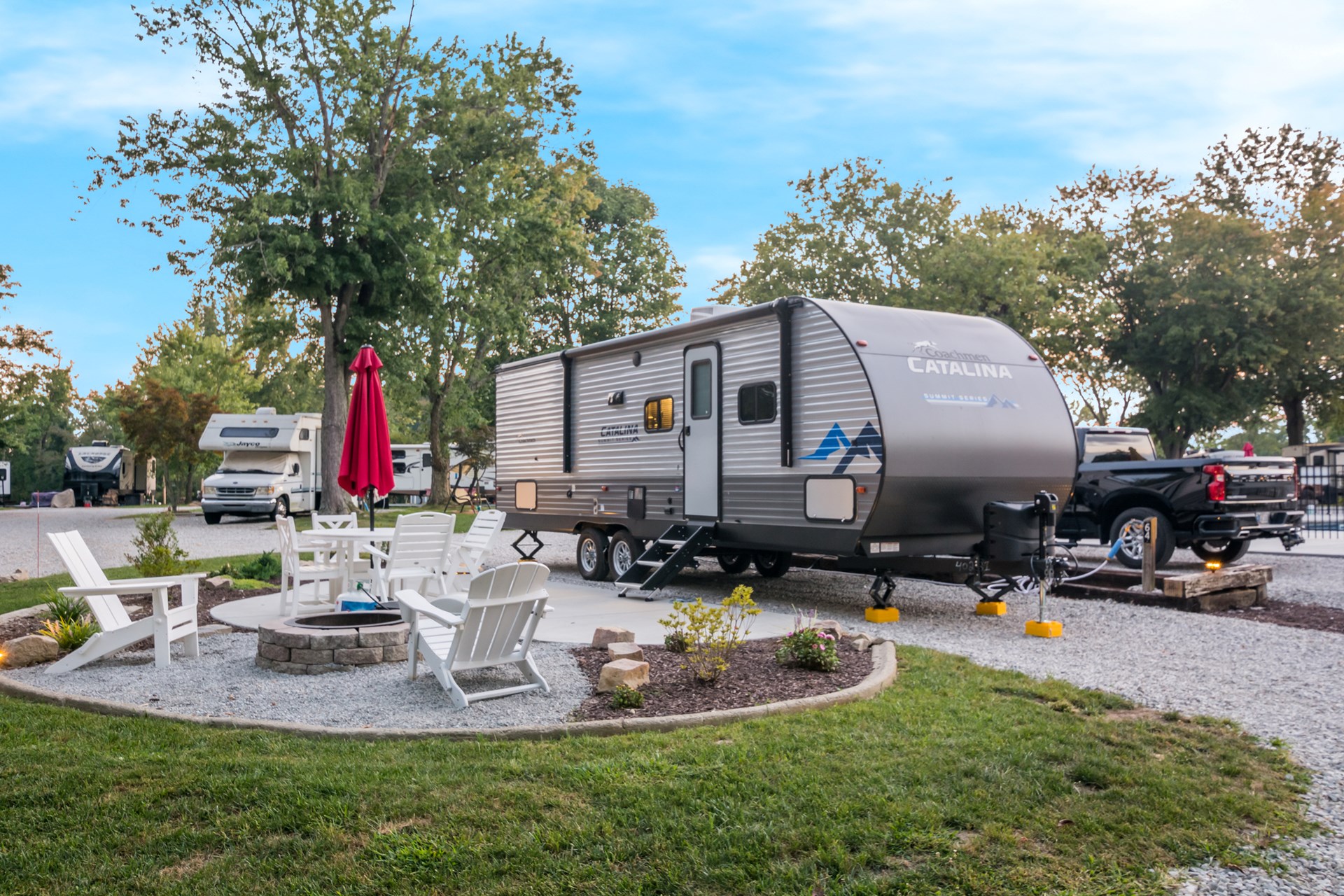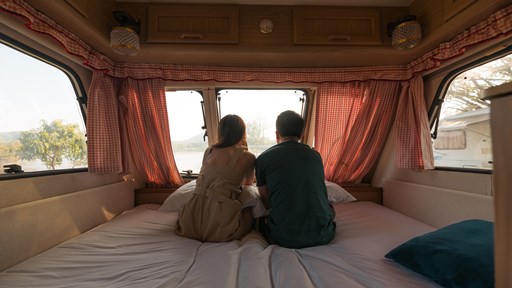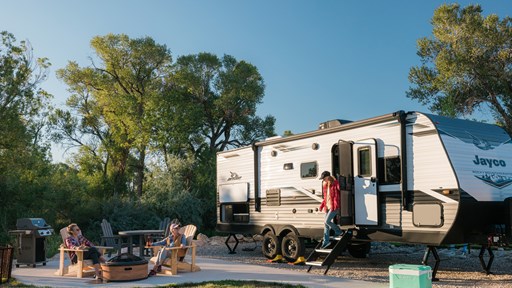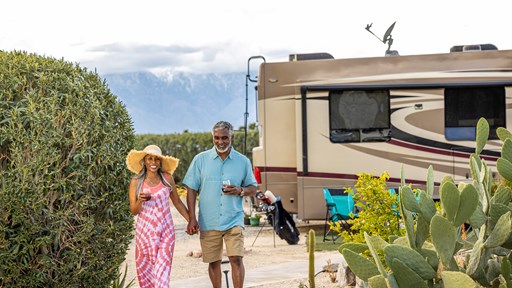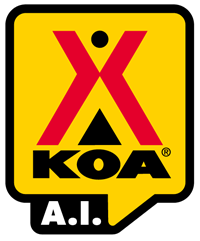If the open road is calling your name, traveling in an RV is a great way to see the best that the country offers with the comforts of home. However, if you have a limited budget or space at your home, you may hesitate to take the plunge and buy an RV for your next trip.
Thankfully, there is a cheaper and more convenient option with RV rentals. RV rentals allow you to enjoy the benefits of an RV without needing to take care of maintenance or other ownership duties. Before renting your RV, however, check out the following tips and tricks to ensure you are making the right choice for you and your travel plans.
CHOOSING AN RV TO RENT
To make sure that you rent the RV you need for your road trip, you will first want to answer a few questions.
So, let’s dig into them.
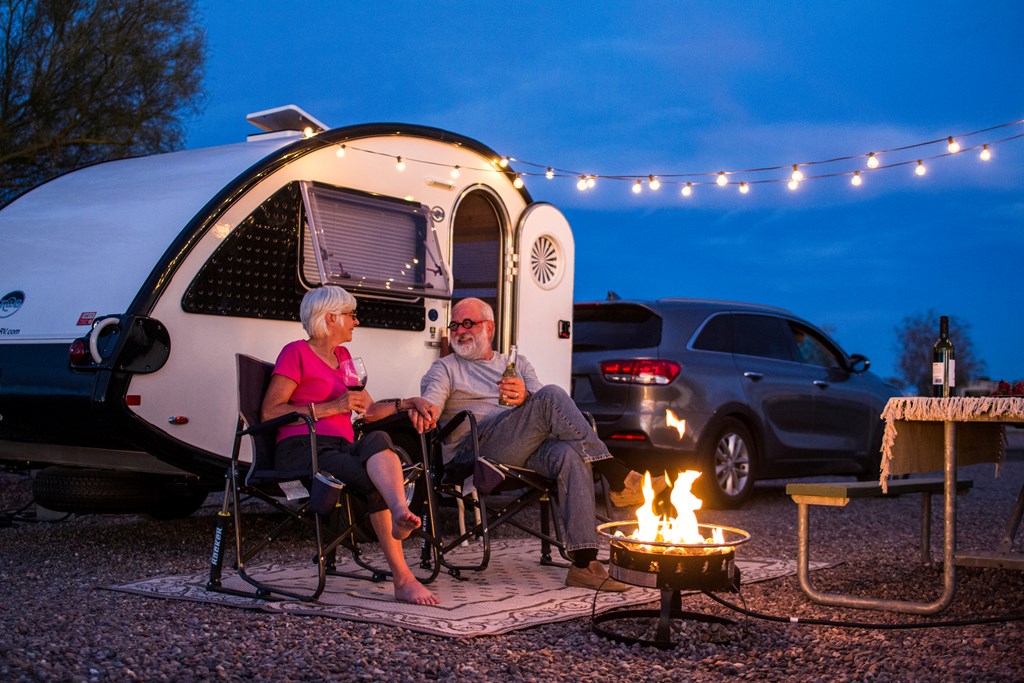
1. What camping experience are you looking for?
If you are into more simple camping, then a travel trailer will work great. This vehicle offers up the basics, but not much more.
However, if you are imagining a more luxurious camping experience, then you are going to want to opt for a Class A RV that has nearly all the offerings you’d find in an apartment.
The options for types of RV to rent are many, and by first determining what type of camping you are hoping to experience, you will be able to take the first step in the renting process.
2. Will you be parking your RV for a while, or moving a lot from place to place?
The amount of moving around you do while on your camping trip should help determine what type of RV to rent.
If you plan to be moving around a lot, you may not want to rent a massive RV. First of all, the bigger they are, the more gas they are going to eat up. Moving your RV from location to location every few days will start to burn through a lot of gas, and thus start to burn a hole in your wallet.
Also, you may tire of hooking up, and unhooking every day or two to move onto the next camping spot as you will have to do with bigger class RVs.
3. Do you want to use your truck to pull the RV?
Obviously, if you want a type of RV that you can pull behind your truck, you are not going to be renting a massive Class A rig.
Instead, you are going to opt for a travel trailer or a fifth wheel that you will be able to use your truck to haul.
However, make sure that the size of your truck is correct for the the trailer — they do have to be compatible.
If your truck and the trailer do not match up, chances are very slim you’ll be heading to the dealership to trade your truck out for a new one that will fit your rental fifth wheel or travel trailer.
Instead, you may want to opt for a Class A RV, or another type that does not require a car to tow it.
4. Who will be driving?
If the person planning to drive the RV is someone who doesn’t feel particularly comfortable behind the wheel of a massive vehicle, then you’re going to want to pick something smaller.
And, if the driver is okay with managing a huge RV, then go for it and live in large luxury with a full-sized RV.
It is absolutely key that the driver of the RV feels confident and comfortable driving whatever type of RV you end up renting. Keep in mind that a big RV with a car pulled behind it can make your entire rig nearly 65 feet long. That is a lot of vehicle!
5. What’s your budget?
How much you are wanting to pay to rent an RV obviously plays a huge role in what vehicle you choose.
Renting an RV is expensive, especially when you are going for a bigger rig that has lots of bells and whistles.
With the answers to those questions in your head, dig into the differences between the specific types of RVs you have to choose from.
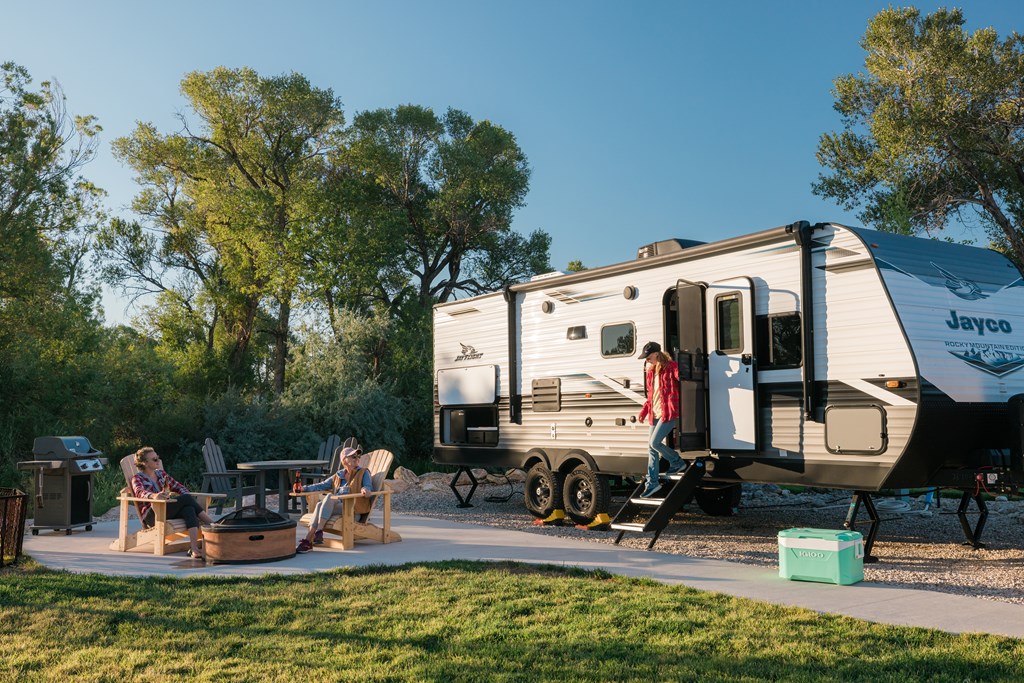
10 Tips to Know Before Renting an RV
An RV allows you to travel the country without worrying about booking a hotel room or a flight. You can also bring more of your belongings in an RV to make it feel like home for however long your vacation lasts.
Whether this is your first time renting or you are trying renting after owning an RV for years, it is essential to know information such as which type of RV you need, the best place to rent an RV and, more importantly, how to drive and park your RV. The following tips can help you make your RV rental a success.
TIP #1: KNOW THE DIFFERENT TYPES
Just like cars, there are different types of RVs. Each one offers different features, and you will want to know what features you are looking for to determine what is the best fit for your needs. Here are the most common types of RVs:
- Class C Cabover – This RV has a van cab with an attached motorhome. Class C RVs typically have a bedroom, bathroom, and kitchen that can be converted into sleeping quarters. Not quite as big as other classes of RVs, the Class C Cabover can comfortably accommodate five people and is fairly easy to manage.
- Class A Motorhome – This type is the largest of the motorhome family. With this, you will traveling and camping in luxury. With more room than other RVs, you can easily live in this motorhome. But keep in mind that with its more luxurious and roomy accommodations comes a bigger rig that is more difficult to drive.
- Fifth Wheel Camper – This pull-behind RV requires a fifth wheel hitch that is mounted in the bed of your truck. Fifth wheel campers have two full-sized beds and bunks, and also offer a kitchen, bathroom, and dinette.
- Towable Travel Trailer – You also can rent an RV that you tow behind your truck, as opposed to drive. These trailers have kitchens, bathrooms, and sleeping areas typically fit for four or five people.
TIP #2: WHERE TO RENT AN RV NEAR YOU
With Kampgrounds of America’s RV Services Directory, you will be able to find the top RV rentals in every state in the U.S. such as Outdoorsy. Our services directory will also provide you with information about great RV dealers, just in case you turn in your rental RV ready to buy one of your very own.
TIP #3: RV RENTAL DEPOSITS AND INSURANCE
When renting an RV, you will need to put down at least one deposit. Some rental places will request a deposit upon making your reservation. This money that is used to hold your reservation is typically applied to the final cost of your rental.
The other type of deposit, a security deposit, is something you will encounter with nearly every RV rental service. This payment is refundable, so long as you return the RV undamaged at the completion of your trip.
As for insurance, it is not optional when renting an RV. Some rental companies may provide the insurance (which will likely result in an additional fee). If the rental service does not offer insurance, you are required to get it on your own. The best way to do this is through your car insurance company.
TIP #4: RV RENTAL COSTS AND RATES VARY
Just like any mode of transportation, rates of renting an RV will go up during peak seasons. Like a rental car, you will pay a daily rate for your RV rental. And the bigger the RV, the more expensive your daily rate will be. However, check for rental specials and deals, as sometimes rental companies will offer those.
In addition to your daily rate, you may be charged for each mile that you travel in your rental RV. Try to have you trip somewhat planned out ahead of time so you know what to expect when the rental company gives you their price per mile.
Now that you have got your RV . . .
TIP #5: REMEMBER, RVS ARE TALL AND HEAVY
If you are used to driving down the road in a small car, or even an SUV, you have likely experienced driving with gusts of wind that move your car around a bit.
However, with an RV, there is no such thing as moving around “a bit.” Any gust of wind, or semi passing by will feel like your RV is about to set sail into the ditch to your right.
Do what you can to travel at a speed that does not put you at a high risk for being blown into another car.
Since RVs do not require a special driver’s license to operate, prepare to learn the ins and outs of driving the RV before taking it out on the open road.
TIP #6: SLOWING DOWN IS THE NEW STOPPING
You know how sometimes you may be a little distracted while driving (ahem, texting while driving) and find yourself slamming on the brakes?
Well, in an RV there really is not such a thing as slamming on the brakes.
Because the vehicle is so massive, it is like a train – you’ve got to plan your stop before you actually make it. Thus, it is best to keep an extra safe distance between you and the car in front of you, should you need to come to a quick stop.
Also, when you turn, make sure you take the turn slowly — extra slowly. RVs can (and will!) tip over if you take a tight turn too sharply. And you do not want to test gravity with this big of a vehicle.
TIP #7: PARKING AN RV IS AS FAR FROM PARKING A CAR AS ONE CAN GET
Are you proud that you’ve finally mastered parallel parking in your car? Well, with an RV, you’ve got a whole ‘nother level of challenge waiting for you in the form of just standard parking.
First, keep in mind that not all places can even accommodate the size of an RV. Want to drive into town to have dinner at your favorite restaurant? Make sure you call ahead to see if they have somewhere you can park.
And if you are able to find a place to park, be sure it’s on level ground. There are certain things in the RV (such as the refrigerator) that won’t run properly if at a tilt.
TIP #8: BE PREPARED TO GET DIRTY
The not-so-glamorous part of renting an RV is emptying the toilets. As there is no way to avoid this (unless you want to deal with the horrors of backed up and overflowing toilets, and likely some serious rental RV damage costs), go into the dumping of your excrement with some knowledge.
The most important part is to use surgical gloves at all times. Feces have touched every part of the dumping station and you do not want those germs. Also, you probably will want to hold your breath — otherwise you may find yourself adding to the dumping in the form of vomit.
TIP #9: GAS MILEAGE IS NOT GREAT
You likely are already aware of this, but plan ahead of time to be spending a fair amount of money on gas in your rental RV. The average RV gets between 8 and 10 miles per gallon, so estimate your gasoline costs ahead of time to avoid any surprises.
TIP #10: PLAN MEALS FOR YOUR TRIP
A great thing about an RV is the money (and health sacrifices) you save by cooking rather than eating out. With your rental, you can keep the fridge and cupboards stocked with snacks and foods to cook some delicious meals!
You may find yourself stopping to grab some road food once in awhile, but will surely love the option of a home-cooked meal while on the road.
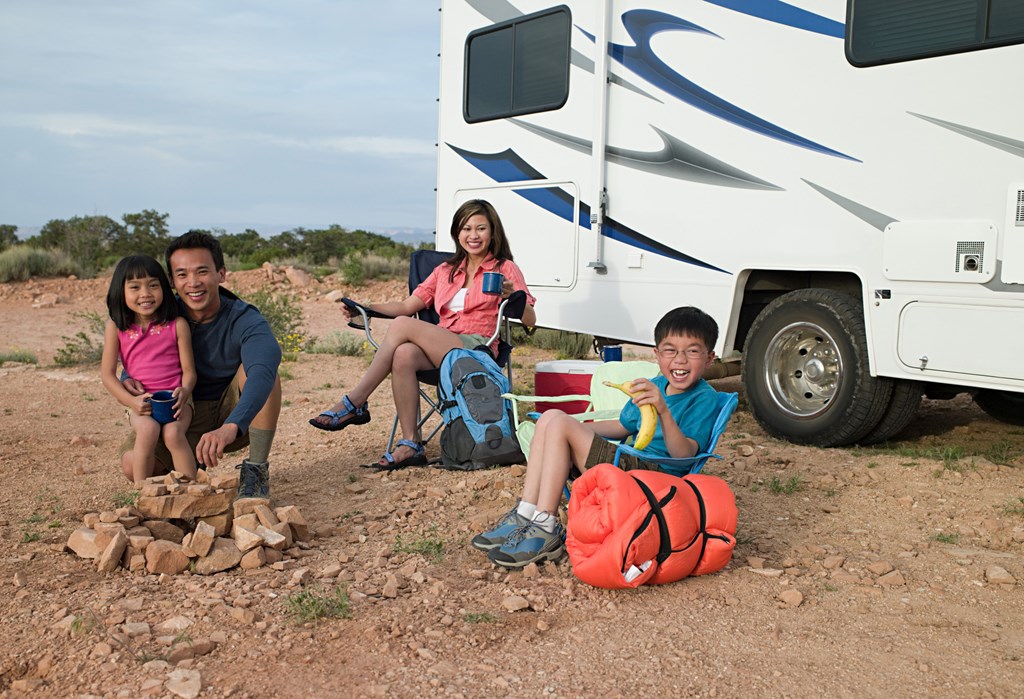
THE BENEFITS OF RENTING AN RV
There are so many benefits to renting an an RV, but some of the major ones include:
USE THIS RENTAL AS THE PERFECT TEST
If you’re looking to purchase an RV, but just aren’t quite ready to make a full commitment, renting is your answer. What better way to learn more about a future investment than to take it for a test run?
GREAT WAY TO TRAVEL WITH FAMILY
You will find that having that family time is priceless. Being able to enjoy both the journey and the destination with your family is something you really can’t do with other forms of transportation. The comforts of an RV will allow you to enjoy each other’s company, rather than feel stuck in a tiny car together.
Multiple Campground Options
RVing has become a popular pastime for many people, and many campgrounds across the United States reflect this growing interest. Whether you want to stay at a campground that only offers accommodations for RVs or one that provides spaces for tents and cabins, you will find plenty of RV camping options.
In addition to a place to park your RV, many campgrounds, like KOA, offer amenities all campers can use. Enjoy hot showers, clean bathrooms at all campgrounds and laundry facilities at select locations. Campers can also find pools, playgrounds, dog parks and more at many KOA locations, allowing for a different camping experience regardless of where you go.
Make Your Next RV Trip a Success With KOA
Are you looking for a campground with fun amenities, spacious RV Sites and everything you need for a fun RVing trip? Look no further when you stay at KOA. Each KOA location offers a different RVing experience with the same exceptional customer service and friendly staff waiting to welcome you.
If you are looking for a location close to a national park or another popular attraction or a site that is peaceful and secluded, there are more than 500 campgrounds to enjoy across the United States and Canada.
Find the perfect campground for your RV by using the trip planner on the KOA website today!
About the Author: Kampgrounds of America
Kampgrounds of America is the largest system of open-to-the-public campgrounds in the world, with over 500 locations across the United States and Canada. Founded in Billings, MT in 1962, KOA’s family of campground brands – KOA Journey, KOA Holiday and KOA Resort – today serve more than a million camping families each year. KOA is dedicated to “connecting people to the outdoors and each other” by providing people with a variety of camping experiences and the information they need to make the most of their camping trip. Read more of their camping and travel resources by visiting KOA.com/blog.



